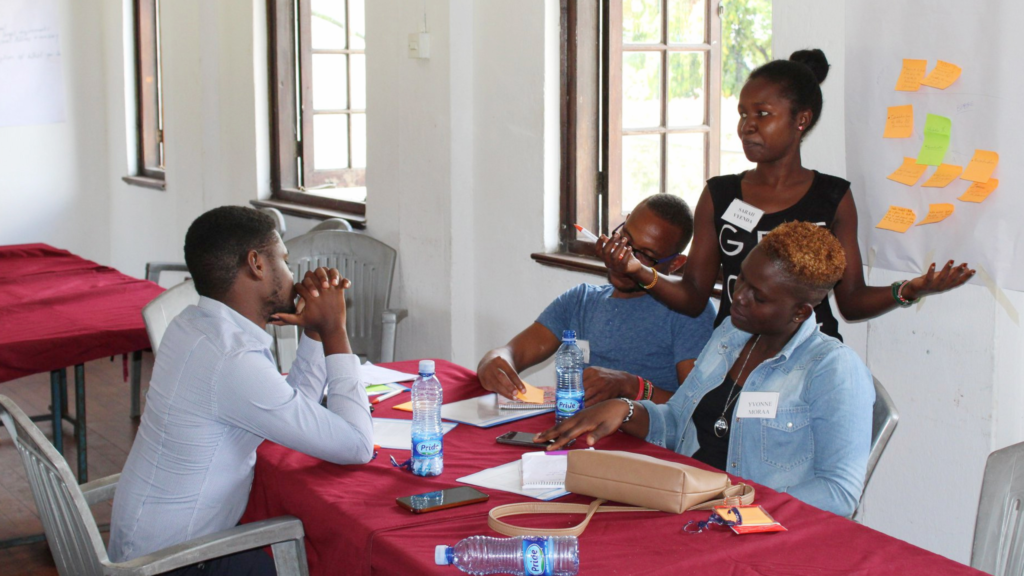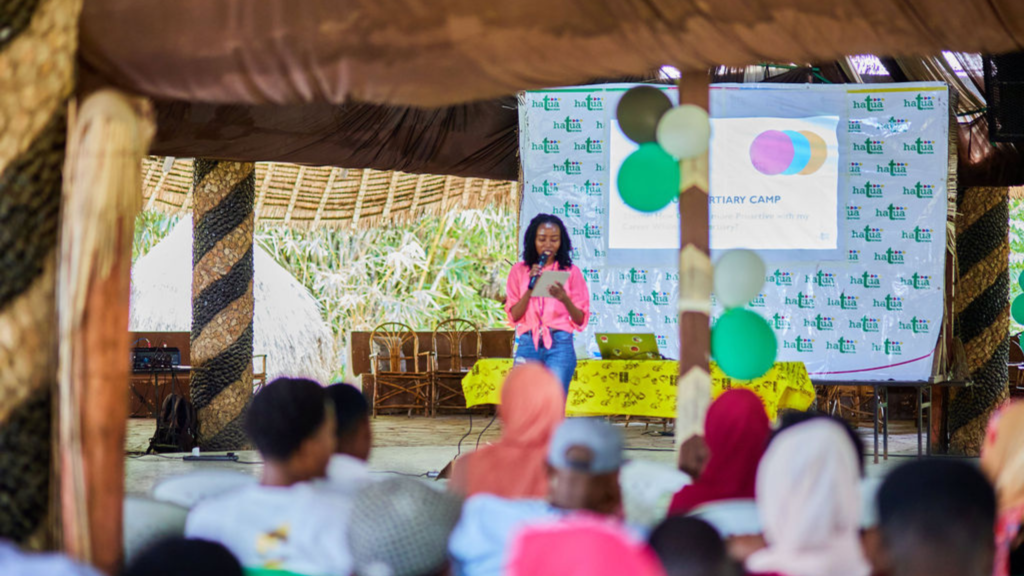Hatua’s mentoring program is a foundational pillar of our scholarship. Throughout their eight-year journey, our students are equipped with critical soft skills that will help them thrive in the 21st-century workforce.
Among the youth we’re proud to see excel in our mentoring program are Cynthia Gathoni and Montana Ochieng, who are recent high school graduates in our program. Despite being top students at Ganjoni Primary School in Mombasa, their families’ financial situation stood in the way of their high school education. After Montana’s mother passed away, he was left in the care of his sister who had only just begun her first year of university, while Cynthia’s mother was a single parent whose earnings as a second-hand clothes seller were barely enough to support their needs. Neither family could afford the cost of secondary school.
Luckily in 2019, they were both awarded a Hatua scholarship and began their journey in high school and Hatua’s mentoring program. At the end of each school term, they would join the rest of their cohort for holiday mentoring sessions which they credit for their personal growth.
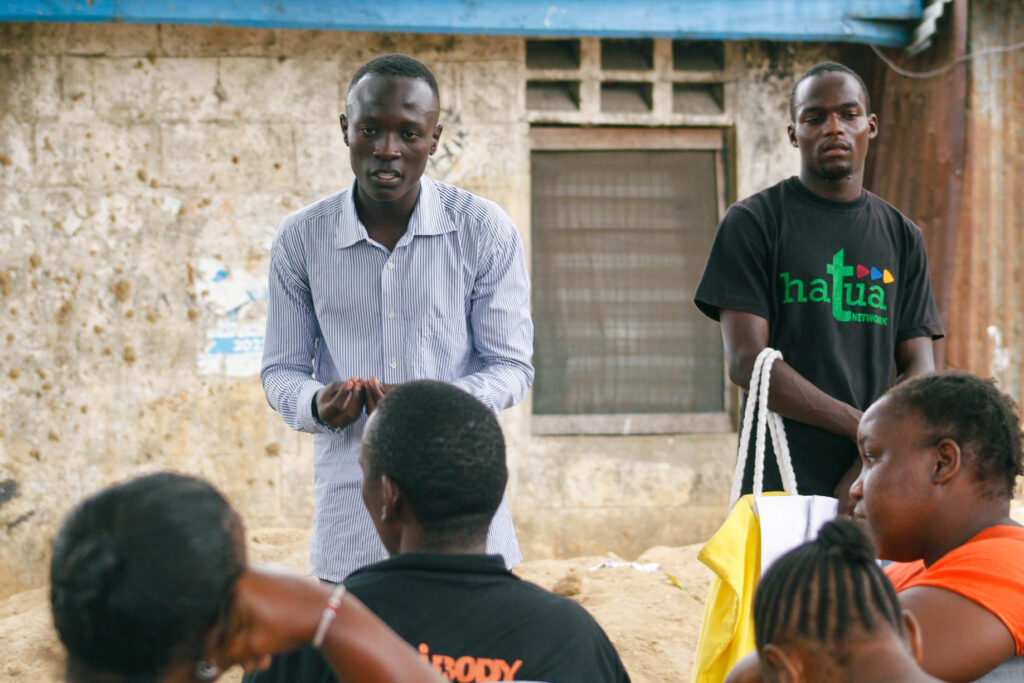
Montana Ochieng during a community sensitization activity at Kaa Chonjo
This year’s Gap Year mentoring session used a human-centered approach to develop and implement a student-led community service project. “I used to talk but I would freeze when it came to public speaking,” Montana says. “But during our Gap Year mentoring sessions we had to create slides on Google Docs, which many of my peers don’t know how to use, and present them to the class. These days I’m a confident public speaker and communicator; it comes quite naturally to me.”
Cynthia also credits Hatua’s mentoring programming for her decision-making skills. “In school we were getting a normal education, but at Hatua we were learning things that were very relevant outside the classroom,” she says. “Everything I learned from public speaking to sexual health and reproduction was really valuable to me because high school was a new environment and it was so easy to be led astray by classmates. Thanks to the mentoring sessions, I got to know myself better and learned how to be responsible.”
Hatua’s mentoring sessions helped Montana steer clear of the repercussions of peer pressure. “Back then, my classmates in high school had started to experiment with drug use. Every time I faced peer pressure I would think about what we were taught about critical thinking by our mentoring facilitators. I believe this helped me become who I am today.”
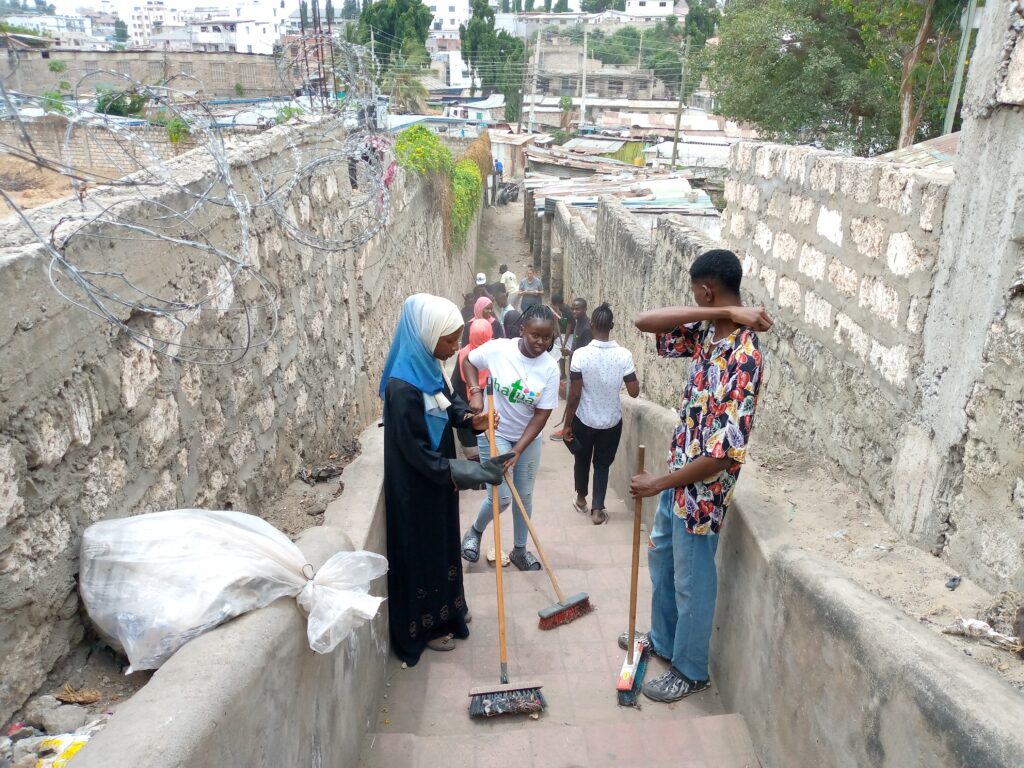
Cynthia Gathoni (center in white t-shirt) sweeps Kaa Chonjo’s access path
In their Gap Year mentoring sessions, they have been participating in community service projects. “We’re doing a lot of teamwork-based projects which I’m told happens a lot in university and which we’re fortunate enough to start doing now,” Cynthia says.
Montana has also noticed a key difference between him and his peers from high school. “Sometimes they will ask me what I’m doing, and I’ll tell them about the projects we’ve been working on during the mentoring sessions,” he says. “We’re making presentations and using projectors, and also becoming community facilitators. They are usually curious to learn more because everything we’re learning here isn’t something they have access to. Most of them are at home and being influenced in ways that aren’t beneficial to them.”
Montana adds, “Mentoring hasn’t been something that I sat down and used to immediately find solutions or ways of going about making decisions. Instead, it’s something that I realize only in hindsight how much it helped me navigate through situations and choices in high school.”
Cynthia is looking forward to joining university to study Analytical Chemistry and has her eye on including IT so that she can become more competitive in the job market. Meanwhile, Montana is interested in following his passion for computers to study IT at the university. They are both grateful that Hatua’s mentor program is helping to prepare them for the next stage in education.
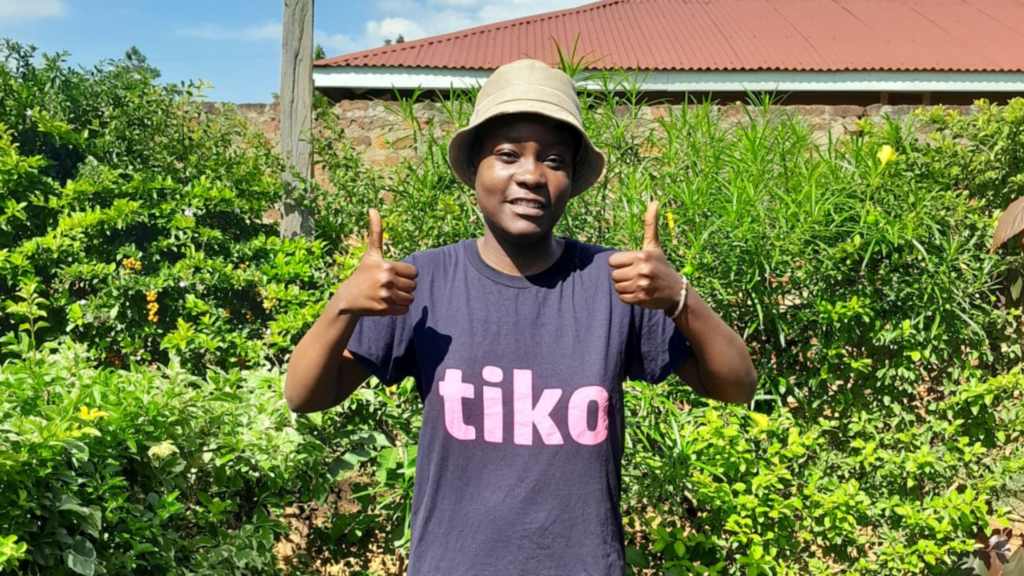
 Read More
Read More